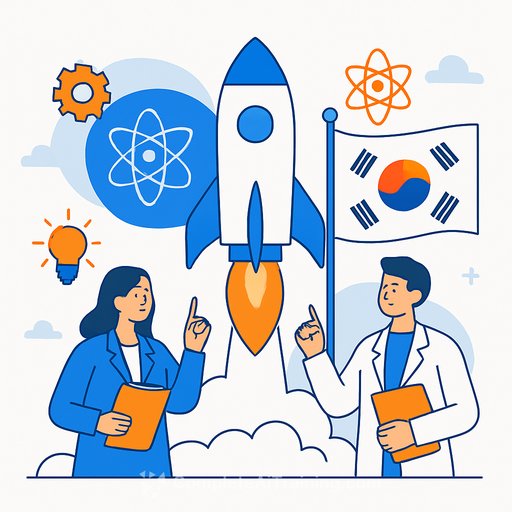2030: Scientists Finally Get to Spend Their Time on Science
At the AI and Bio Convergence Research Institute, Dr. Kim Ji-an starts the day with research data-not forms, not receipts. Administrative work once pushed to month's end is now handled by research administration professionals funded through university block grants. The job is clear again: do the work that moves science forward.
The NEXT Project: Long-Horizon, High-Risk Research
Dr. Kim is all-in on a high-risk study under the NEXT Project, a government system built to back long-term bets on strategic technologies across ministries. Private experts oversee the entire cycle, free from outside interference. The intent is simple: support next-generation growth with patient capital and autonomy.
New Rules of Evaluation: Quality Over Quantity
The old scorecard-count the papers, count the patents-has been retired. Five years ago, binary success/failure scoring tied to preset goals was abolished. In its place: a qualitative process that values originality, technical difficulty, and the learning baked into "failed" experiments.
A pool of 6,000 vetted evaluators and a real-name system raise accountability. Researchers can present their single most important achievement over three to five years, and domain experts evaluate its true contribution. If the assessment reflects expert judgment, participation rises-and so does trust in the outcome.
Less Paperwork, More Science
Institutional support is finally catching up with the work. Researchers can autonomously use 10% of direct expenses (including conference meals), and block funding shifts equipment management and admin tasks to the institution. The result: fewer chores, deeper focus. As one professor noted, cutting busywork can match the output of a 60-hour week-without burning out your best people.
Resetting the Talent Pipeline
Afternoons bring high school mentees into the lab. They talk about becoming "national scientists" they saw on the news, a noticeable shift from the old belief that medicine was the only top path. That's what a clear policy vision can do: make science aspirational again.
The Ministry of Science and ICT set a direction to build a virtuous cycle-great people produce meaningful results, and those results attract more great people. Process-focused evaluations and professionalized research support are the backbone of that bet.
Ministry of Science and ICT (MSIT) - Policy and Programs
What This Means for Your Lab
- Frame one flagship contribution for the next 3-5 years. Document novelty, technical depth, and field impact.
- Systematize "assetization of failure." Capture negative results, design decisions, and data for reuse and citation.
- Reclaim researcher time. Push admin, procurement, and equipment logs to institutional staff funded by block grants.
- Use the 10% autonomy wisely. Prioritize convenings, collaboration travel, and data resources that compound learning.
- Engage with the evaluator pool. Publish clear methods, preregister where appropriate, and keep artifacts audit-ready.
- Mentor upstream. Build internships and lab visits to attract motivated students before they lock into other tracks.
- Align to strategic tech areas. Map your roadmap to national priorities to tap cross-ministry support earlier.
Funding and Governance at Scale
The government is backing this shift with the largest-ever R&D budget-35 trillion won. The goal is direct: create an environment where top talent gathers, takes on ambitious work, and delivers world-class results. The policies now in place give you permission-and cover-to pursue bold research without the fear that one imperfect outcome ends your momentum.
Practical Next Steps
- Set a quarterly "admin audit" to offload tasks your institution can own under block funding.
- Define your lab's core thesis and the one big contribution you want judged in the next cycle.
- Create a standard "failure report" template so insights carry forward across projects and teams.
- Rebudget travel and convenings to maximize serendipity-workshops, working groups, and small, technical meetups.
If you're upskilling your team on AI methods tied to your research domain, explore curated training paths by role: Complete AI Training - Courses by Job.
Bottom line: The system is moving out of your way. Use the time and trust to pursue the work you'd do if no one was counting papers-and document it so others can build on it.
Your membership also unlocks:






